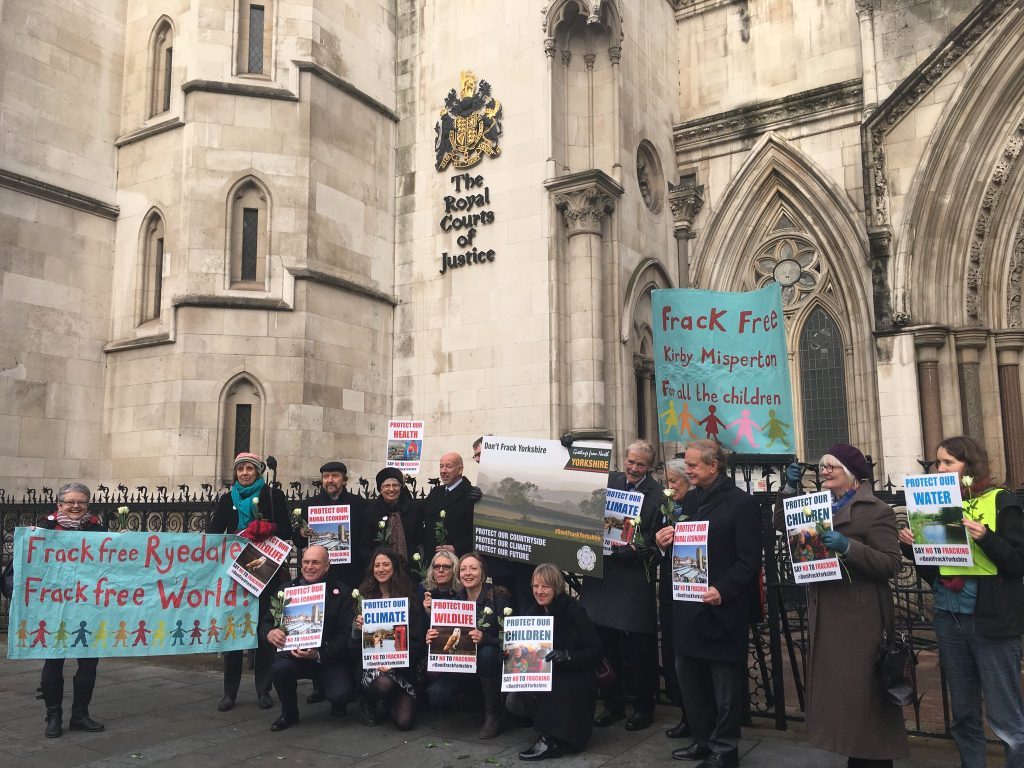
Stripping local planning authorities of decision-making on fracking in their area would be “hugely harmful” to local democracy, MPs have warned.
The Government has proposed a move to deal with planning applications for fracking at a national level, under the nationally significant infrastructure projects regime, as part of efforts to get the industry up and running.
But moving decisions on fracking planning applications to a national level is likely to exacerbate mistrust between communities and the industry, the parliamentary Housing, Communities and Local Government Committee said.
There is little evidence that it would speed up the planning application process and “could be perceived as a significant loss to local decision-making” a report from the committee said.
The report also warned against plans to give non-fracking shale exploration permitted development rights, commonly used in home extensions to allow small-scale work without planning permission.
Committee chairman Clive Betts said: “Taking decision-making powers away from local planning authorities would be a backward step.
“It would remove the important link between fracking applications and Local Plans and be hugely harmful to local democracy and the principles and spirit of localism.
“It is mineral planning authorities that have the knowledge of their areas needed to judge the impacts of fracking, not ministers sitting in Whitehall.”
And he warned: “Any move to alter this process also seriously risks worsening the often strained relationship between local residents and the fracking industry.
“The Government has failed to provide any justification as to why fracking is a special case and should be included in the regime in contrast to general mineral applications.”
Efforts by the Government to help get fracking off the ground have proved controversial, with some planning decisions going against the industry, and protests by locals and campaigners who oppose the development of wells.
The process involves liquid pumped deep underground at high pressure to fracture shale rock and release gas.
The Government has said shale development provides economic opportunities for jobs and investment, and can play a “key role” in maintaining energy security.
But opponents fear it can cause earthquakes, pollute water, lead to damaging development in the countryside and hit house prices, and is not compatible with targets to cut fossil fuel use to tackle climate change.
The report by the committee said mineral planning authorities, usually county councils, are best placed to understand the local area and how fracking can best take place.
If the Government presses ahead with plans to include fracking in the national regime, it must urgently produce a national policy statement to make sure the cumulative impact of applications is automatically considered and every decision is consistent with local plans.
Ministers also need to clarify and consolidate fracking policy within the national planning rules which are being revised, including spelling out how fracking for a fossil fuel sits with UK commitments to tackle climate change.
There should be a “one-stop shop” for all fracking guidance and policy documents.
And the Government should amend the definition of fracking, which currently does not reflect technologies used or public understanding of the process, the report urged.
Friends of the Earth campaigner Tony Bosworth said: “MPs are right to denounce Government plans to make it easier for fracking companies to drill without planning permission and slash the involvement of local people.
“It’s absurd that the Government wants to apply rules originally designed for harmless activities like putting up a garden shed to include drilling for oil and gas.
“Fracking is highly contentious and bad news for our climate and environment: at the very least local people deserve to have a say.”
Daniel Carey-Dawes, senior infrastructure campaigner at the Campaign to Protect Rural England, said the Government must heed the warnings in the report and “abandon plans to fast- track fracking”.
“Failure to do so risks leading to the industrialisation of our countryside, all for the benefit of an industry that has no environmental, economic or social licence,” he said.
Ken Cronin, chief executive, UK Onshore Oil & Gas, said: “The report fails to address a main concern of both the industry and local communities, which is the fact that planning applications for even the simplest of wells now take up to 18 months to conclude and that many of the professional planning officers’ recommendations are ignored.
“This leaves communities with uncertainty and local taxpayers with a huge bill to foot, and is against the experience of the previous 10 years where most applications were decided in less than four months and against a statutory timescale of three months.”
Recommended for you
